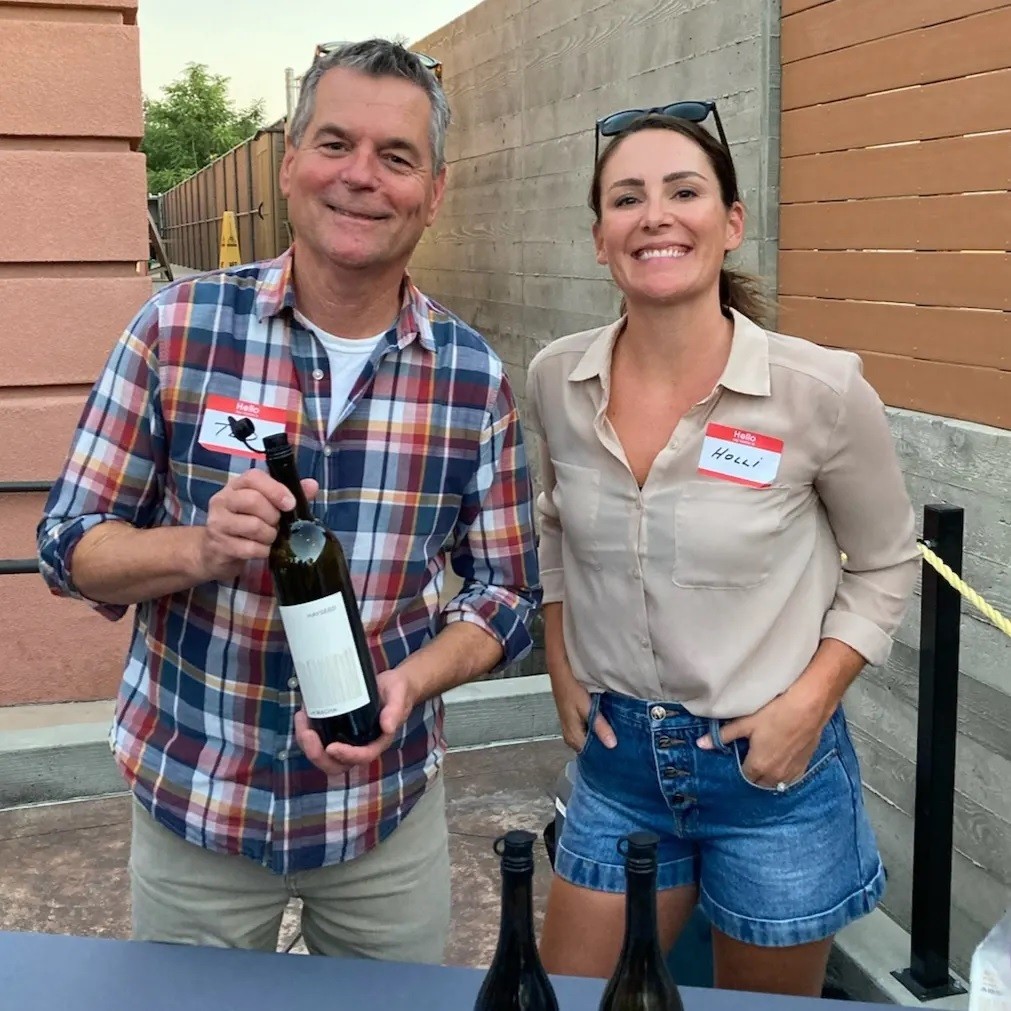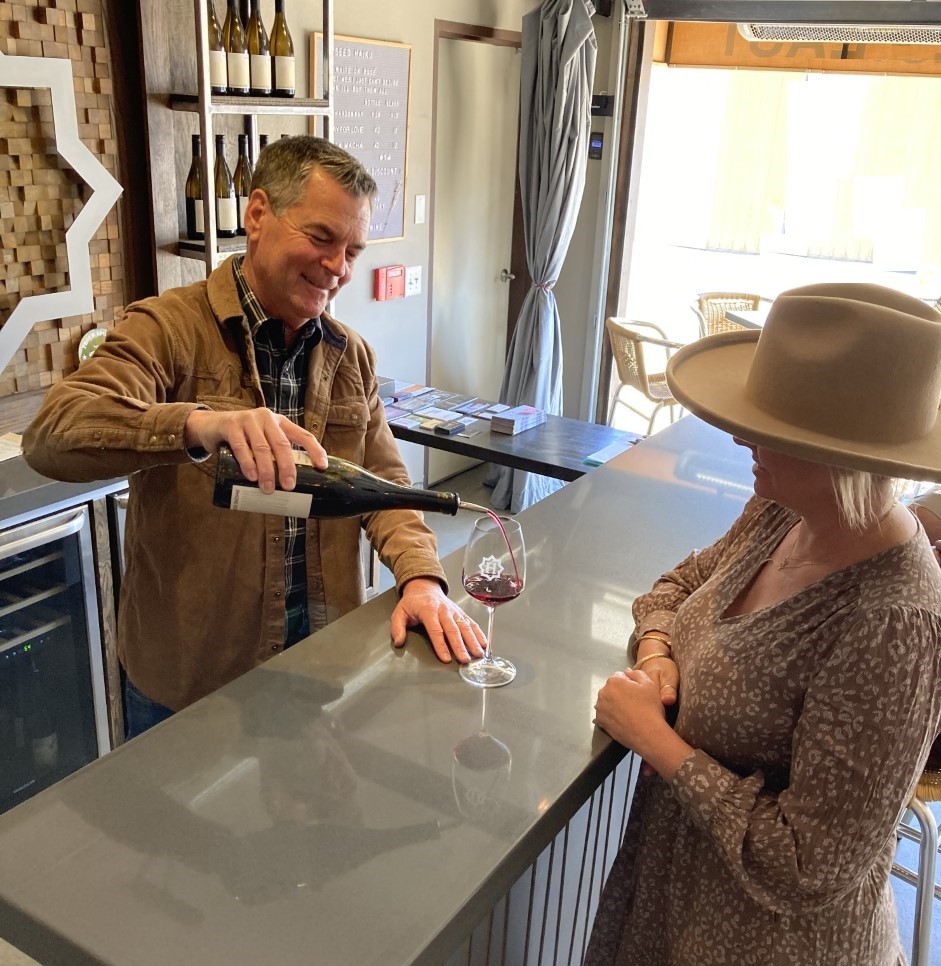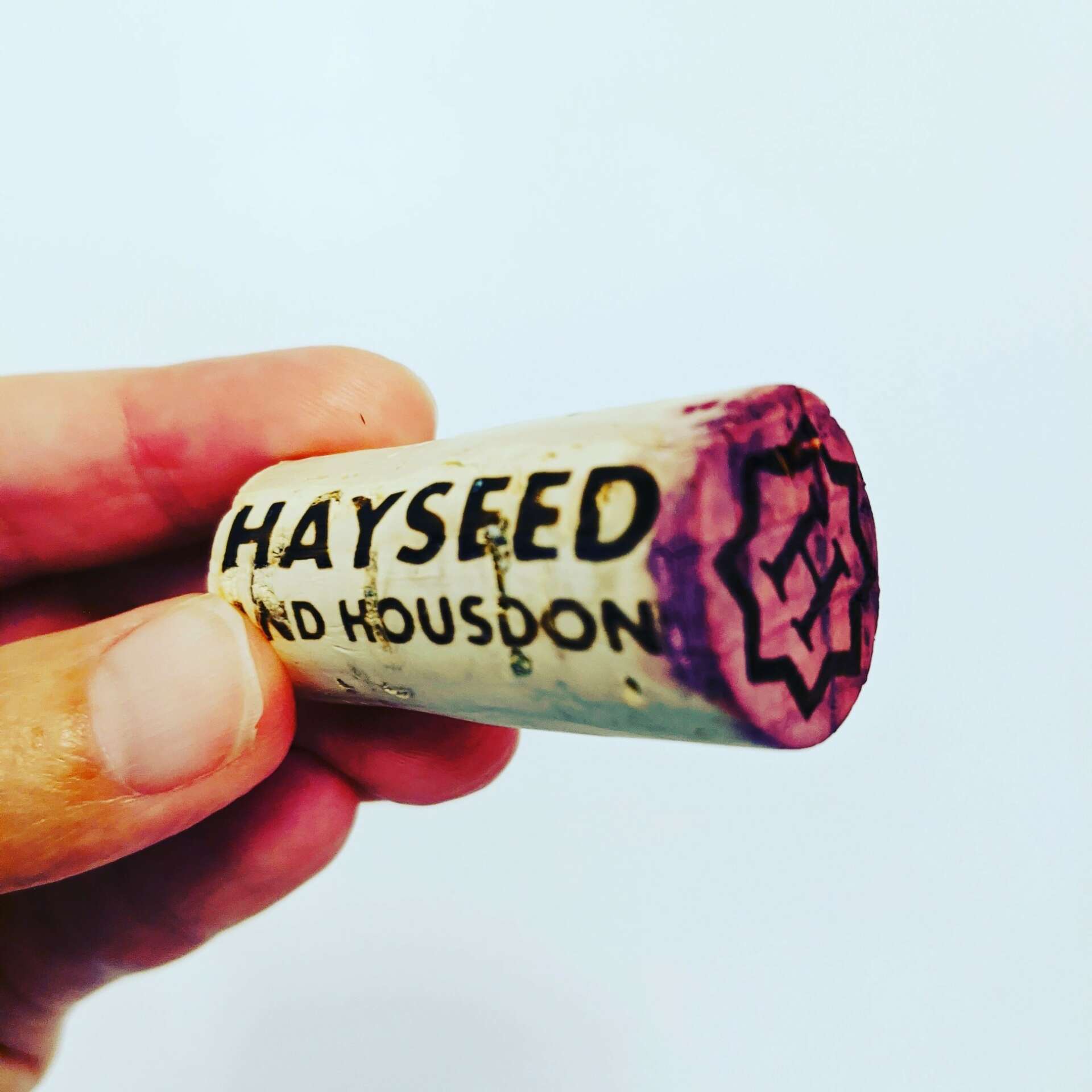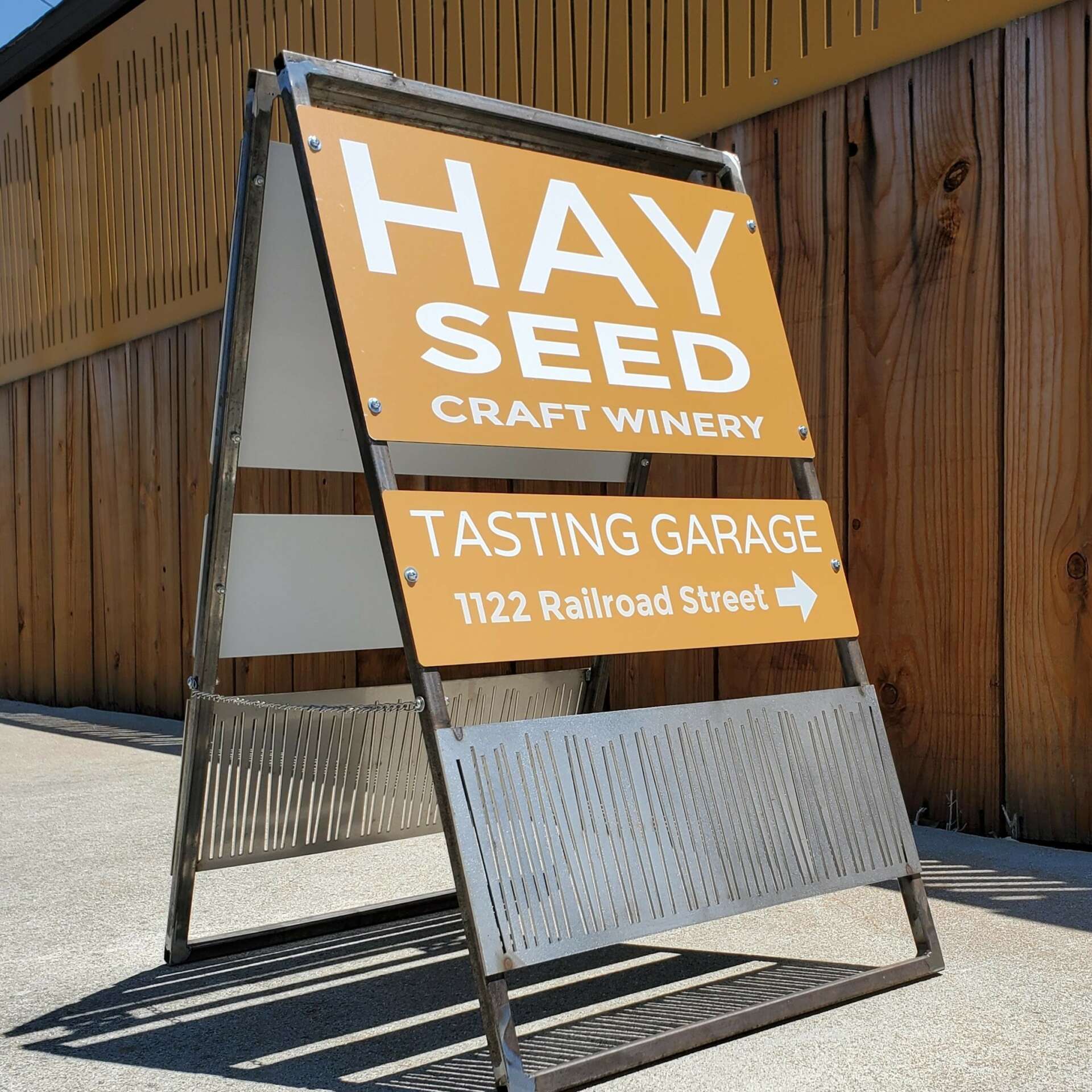We were lucky to catch up with Ted Ross recently and have shared our conversation below.
Ted, thanks for taking the time to share your stories with us today Let’s start with the decision of whether to donate a percentage of sales to an organization or cause – we’d love to hear the backstory of how you thought through this.
When we started our winery we made a commitment to support local nonprofit organizations that provide support to members of our community that we care about. We now offer eight different varietals and blends and have a relationship with eight nonprofits that we share our profits with 50/50 – with each bottle we offer raising funds for a specific organization. These amazing nonprofits look after veterans, the unhoused, individuals experiencing intimate partner abuse, advocates for children in foster care, undocumented families that do much of the heavy lifting in the wine industry, young people caught up in the drug culture – even our local animal shelter. Rather than focus all of our energy and profits on just a single organization or segment of the community we chose to ‘share the love’ so to speak.


Ted, before we move on to more of these sorts of questions, can you take some time to bring our readers up to speed on you and what you do?
Paso Robles is a wine town and it’s very easy for new residents to get pulled into the industry in some way. When I moved to Paso from Southern Califonia in 2013 my only objective as it related to wine was drinking a fair amount of it. Shortly after my arrival, I was introduced to a young couple (Enrique and Nora Torres of Diablo Paso Wines) that had just launched their own family-run winery. My professional experience was in marketing so I offered to help them begin to engage with consumers and sell their wonderful wines online – enabling them to ultimately open a tasting room, expand their wine offerings and grow a loyal customer base. As a thank you to me, in 2016 Enrique suggested that we buy some grapes together and begin making wines for a label of my own. Starting a winery was not something I had ever considered – but this did present an opportunity to make good on a commitment I had made to find a way to “give back” to the community – something I did not do that much of while I was busy raising a family and focused on my own career success. The opportunity to make wine, sell wine and split the profits with worthy organizations that serve the disadvantaged appealed to my generally guilty conscience.
Any stories or insights that might help us understand how you’ve built such a strong reputation?
Though we launched our wine label only 3 and a half years ago we’ve seen our case production – an important metric in the wine industry – grow from 400 cases sold to around 1,000 cases, annually. We have benefitted from steady growth, despite Covid, thanks to the tremendous support we receive from our local community. This comes in the way of direct purchases & participation in our wine club by local wine enthusiasts, of course, but also the significant number of referrals we receive from other sources. These sources – which include folks working at other wineries and volunteers at the many local nonprofits we support – value the commitment we have made to raise awareness and generate funds for charitable organizations. We interact with a large number of out-of-town visitors as well, naturally, but only a small percentage are aware of our commitment to giving prior to their visit to our wine-tasting garage. But for local support, we would probably sell only half as much wine as we do.


Can you tell us about a time you’ve had to pivot?
The perspective one accrues over a two or three-decade-long career in marketing consulting – particularly after engaging primarily with Fortune 500-sized businesses – is surprisingly impractical insofar as running a small product-based and largely retail-focused business goes. Despite having what I felt was a solid background in business, too much of my professional experience was rooted in theory. I am now in the position of “having to eat my own dog food” as I’ve heard people say. I’ve got to summon all the theoretical know-how that I’m “full of” and find a way to actually apply this knowledge on a day-to-day, week-to-week and month-to-month basis at my winery. In my career I often wondered why some of the businesses that our agency teams consulted with sometimes didn’t put into action the very sound recommendations we made. Running my own small business has, finally, given me an appreciation for the fact that there are almost always other competing priorities; limitations on resources and so on.
Contact Info:
- Website: http://www.hayseedandhousdon.com/
- Instagram: @hayseedwine
- Facebook: https://www.facebook.com/hayseedwine/
- Linkedin: https://www.linkedin.com/in/ted-ross-3b4519/
- Yelp: https://www.yelp.com/biz/hayseed-and-housdon-paso-robles


